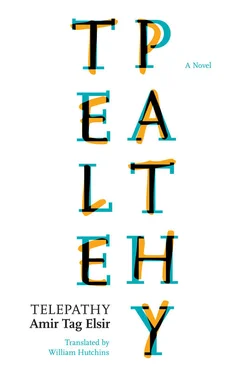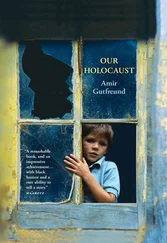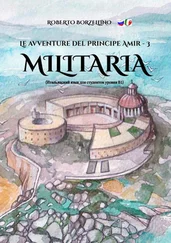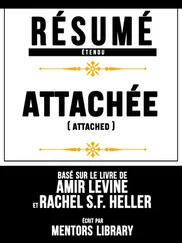Najma had arrived before me and was waiting for me, seated at a comfortable table in the Juwana Café in the affluent Al-Riyadh neighborhood. She wore a light blue blouse — in a modern style, for the first time — and a black satin skirt. Her gray silk headscarf matched her outfit, and many changes were visible on her face. She had applied eye shadow and eyelash extensions, and plucked her eyebrows till they were as narrow as a thread.
She was, in brief, a modern girl — something she hadn’t wanted to be throughout those past years — and a dutiful slave to fashion.
I found myself gazing at her even before I greeted her. My conjectures raced breathlessly to explore her psychological depths, wishing to guess what had happened and what might happen now.
Without reflecting whether it was an appropriate question, I asked, “What’s happened? Why have you changed so suddenly?”
She tilted her head slightly to the left in a familiar and deliberately flirtatious movement that women frequently resort to, but did not smile. She replied, “I want to become a mother.”
My next question also popped out without any reflection or consideration of whether it was suitable. “Have you married? Who is it? Your friend Tulumba?”
She choked up, no doubt about it, and frowned severely. “Would I marry someone like Tulumba? Are you serious? In any case, Tulumba has passed into God’s care, may God have mercy on his soul.”
I was as thunderstruck as if she had mentioned one of my relatives or friends. “Has Hamid Tulumba really died?”
“Yes. . Six months ago, in one of those traffic accidents we witness every day. So the novel he was writing for my life was lost.”
I didn’t know what to say when this supercilious girl was supercilious even about a tragedy and spoke of her wretched lover’s death as if she were discussing the death of a repulsive cockroach in a corner of her kitchen. What had interested her about his existence was how he was “writing” a role for her as a legendary beloved, even as she progressed step by step through an ordinary life. She had been seeking inspiration from the pages that his life created for a silly, boring novel, one I doubt she could have written. Otherwise, why had she once asked me to write it?
I began wrestling with myself about whether I should remain there with her to investigate her newfound femininity and the causes for it or return to my own life and purify it of this cruelty by mourning for a miserable boy. I hadn’t really known Tulumba well, but I could imagine the life he might have lived had he loved a girl other than Najma.
At that moment Tulumba won out, and I rose while the coffee the elegant waiter had brought was still hot and untouched. Najma, however, grasped my hand entreatingly, and I sensed then that her hand belied her persona. This was a tender woman’s hand. She said, “Please sit down. Please, Master.”
I sat back down, disgruntled, and she began to speak at once. “Forget the past, Master. Tell me frankly: Why didn’t you remarry after your divorce seven years ago?”
This was an unexpected question, and the girl had prepped herself on my biography. I had dozens of answers I could regurgitate. I could tell her, for example, that marriage is antithetical to creative writing or — more accurately — is injurious to it. I could say that a creator who is preoccupied by the thrust of creation cannot exert a comparable thrust on behalf of his family. I could inform her that the presence of books in a conjugal home is comparable to the presence of land mines in a small field: they may explode and create chaos, provoking quarrels any day. I could say that my life belonged to me and that I cared for it; it allowed me to roam when I occasionally needed to in order to produce a manuscript.
But I said nothing of the kind. I gripped the staff by the middle merely to learn what was passing through her cruel mind and what her new femininity concealed. I don’t know; I simply wasn’t thinking. “The failure of the first experiment perhaps caused me to avoid repeating it.”
“Possibly,” she responded as her head inclined to the right and a lock of hair, dyed dark brown, peeked out boldly from beneath her gray scarf.
“Possibly, but not all experiments are the same. Even in your narrative experiments, you certainly must have had successful experiments and others that were less so. Do you agree with me?”
I undoubtedly agreed with her. There certainly were novels I wished I hadn’t written, especially when I was first starting out and was stingy with my narration. I would pursue the rhythm of the sentences breathlessly. I didn’t exploit some characters well; others I exploited in an exaggerated way, leaving them anemic. I had been candid in my reading of my personal experiments and greeted whatever was worth greeting in them wholeheartedly and blamed harshly whatever was blameworthy. I had striven industriously for many years to track down the maladies and defects in my writing’s corpus so I could treat them. Perhaps I have succeeded at that; perhaps I have failed. In any case, experimentation ultimately remains the author’s child, to be adopted willingly or not.
“Yes, I agree with you, but why are you asking these strange questions?”
I realized as I contemplated her more and recalled my meetings with her that I had never written about a character like this and that there would be no harm in my writing about such a person — I mean a woman who is awed by her own ideas and focuses only on them, who can exploit ugliness and transform it into beauty. Thus she sees the tortured moans of people harmed by her as disturbing her peace of mind, whereas her own moan is like a colored light that other people should be dazzled by and follow. Even cruel Salma, the police officer who made innovations in sexual torture and about whom I wrote in one of my novels — I have mentioned that I prolonged her life in the last two pages to allow her a chance to apologize to her numerous victims before she died — was, in the final analysis, a woman convinced that she was in a field of work that ended when the work day did. She would return home, embrace her husband, kiss her child, and light the stove to cook dinner. Najma was totally different; Najma was a one of a kind character. I swear that she had never swept a dusty courtyard, had never washed a dirty dish, and had never even turned off an alarm clock when she woke up. Now she aspired — in a frivolous manner — to assume the status of mother while lacking all the aptitudes.
But what man would grant her this honor?
I sensed genuine distress when I considered that she might want to marry me personally. If not, what was the point of these changes that she had adopted when meeting me? Why was she asking me about marriage at precisely this moment? I had known her for quite some time and she had never asked such questions before.
I forced myself to shake off my despair while I waited to hear what she would say.
“In short. .” Najma replied as many burdens vanished from her face to be replaced by new gentle attractions. Two locks of her brown hair were now in clear view, and her breathing seemed more regular. A decorative fish tank stood on a shelf within my field of view, and it seemed to me that a sparkling fish inside it was swimming with a vanity quite unlike that of the other fish.
“In short, after profound thought and after sifting through all the men I know, whether or not they have proposed to marry me, I have chosen you to be my husband and grant me motherhood. It wouldn’t hurt you. I don’t claim that I would make you happy or compensate you for your former life, but I have an intense need to become a mother.”
I was not astonished, nor should I have been; this was the type of conduct that fit exactly the character I knew. Even if Najma hadn’t said that, I would have invented it myself and attributed it to her character, without any hesitation or sense that I was violating a woman’s rights.
Читать дальше












